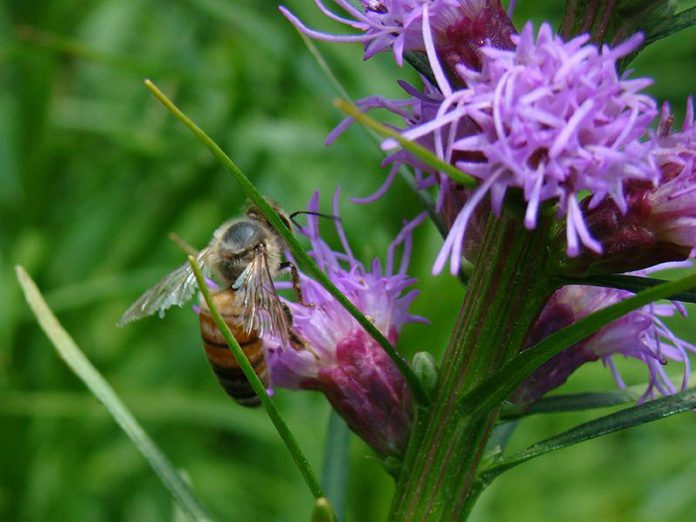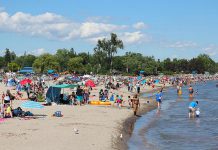
After spending the past two weeks in Florida, returning to spring in Ontario was quite a shock to the system.
The daytime highs in the sunshine state never dropped below 28° and an umbrella was only required on one of the 14 days I was in the state. Our wet and cool spring pales in comparison.
This was my first time in Florida and there was a lot to see and do. Staying at several state parks, there were several opportunities to see many types of wildlife, plants, and insects. Something that caught my attention right away was the lack of bees I saw. While not totally absent, there were few pollinators — despite being in locations where there were plenty of flowering plants,
The lack of bees that I witnessed is in line with the bigger picture: we’re seeing big declines in bee and pollinator species worldwide.
We depend on honeybees and the 800 other native bee species found in Canada for the important role of pollination — the transfer of pollen from one plant to another. Pollination allows for the reproduction processes of plants to occur, ensuring that seeds are produced and, in many cases, is vital to the production of food crops.
Since we depend so heavily on bees for pollination of our food crops, we should be alarmed at the rate of their decline in recent years. Studies have shown that everything from air pollution to viruses to the over-use of pesticides is responsible for the declines in worldwide populations of bees. Whatever the reason, it’s clear we all need to do our own small part to help save these very important and worthwhile insects.
One of the simplest ways to help pollinators is to plant a pollinator garden. Providing a bee-friendly habitat which includes nectar-rich plants will have pollinators flocking to your backyard, using it as a safe haven and a place to reproduce.
The key to a pollinator garden is to use as many native plant species as possible. Native plants have evolved closely with our native insects and are well-suited to meet their needs. Some pollinator species are actually reliant on the availability of certain types of native plants. When choosing plants, it’s important to seek out older varieties. It’s commonplace today to find types that have been bred to look or smell nice but often lack accessible nectar or pollen for insects or animals.
It’s also important to consider the shape of the flowers. Try to select trumpet or cup-shaped flowers — such as cardinal flower, honeysuckle, and bee balm — to attract a wide range of pollinators. Pollinators with shorter tongues, such as small native bees and wasps, feed on tightly packed clusters of small flowers, such as those found on milkweed, zinnia, or phlox. You can find many of these types of plants at the GreenUP Ecology Park Garden Market.
Now is the time to begin cleaning up gardens and putting the first plants in the ground. Despite a damp and cool weekend in the forecast, one of Peterborough’s best plant sales is set to run at GreenUP Ecology Park. The annual spring plant sale is happening on Sunday, May 18 from 12 to 4 p.m. at the park, located at 1899 Ashburnham Drive next to Peterborough Utilities.
At the sale you can find over 30 types of vegetables and annuals and over 150 types of edible and native plants, shrubs, and trees available for purchase. Self-serve compost, cedar mulch, grass seed, and veggie seeds will also be available for sale. Check out the park’s newly expanded food garden and children’s garden displays while you’re there. Another great reason to attend is to have your gardening questions answered by the pros. In addition to GreenUP Ecology Park staff, Peterborough Master Gardeners will be available to answer your questions and provide expert advice.
If you are looking for a particular plant, tree or shrub, visit the GreenUP Ecology Park online plant catalogue at www.greenup.on.ca. All funds raised from the plant sale to go further support GreenUP Ecology Park education programs and services.


























